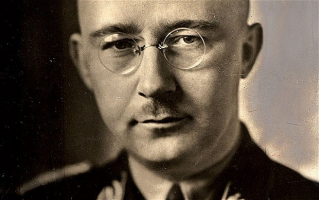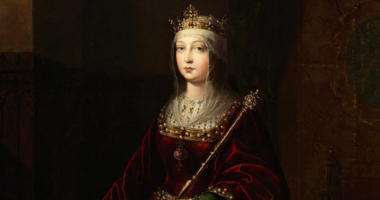Top 12 Interesting Facts about Winston Churchill
Winston Churchill lived to be 90 years old, and throughout that time he did a great deal. The majority of us will recall Winston Churchill as a politician, and ... read more...his role in the Second World War is unquestionably recognized, but it is only one aspect of this magnificent man's life. Churchill's life and accomplishments may seem familiar to you, but how much do you know about him? In this post, we'll examine 10 interesting facts about Winston Churchill that you might not be aware of.
-
British nobles were often wed to American heiresses in the late 19th century. One such marriage like this took place between one Lord Randolph Churchill and Brooklyn heiress Jennie Jerome. On November 30, 1874, Lord Randolph Churchill and Jennie Jerome welcomed Sir Winston Leonard Spencer-Churchill into the world into the aristocratic line of the Dukes of Marlborough, a branch of the noble Spencer family. The daughter of American businessman Leonard Jerome, Jennie Jerome was a socialite in the United States. Leonard Jerome sometimes referred to as "The King of Wall Street," had stakes in various railroad firms and frequently partnered with Cornelius Vanderbilt in business transactions. She was a supporter of the arts and established the Academy of Music, one of the first opera houses in New York City. In the most elite social and political circles in Britain, Lady Randolph enjoyed respect and influence. She had a reputation for being sharp, funny, and intellectual. Queen Alexandra was reportedly extremely enjoyed with Lady Randolph.
Lady Randolph relied heavily on nannies, particularly Elizabeth Everest, to raise her kids, as was customary for women of her social status at the time. Winston wrote his mother a lot of letters when he was in school, pleading with her to come to see him more often than. In "My Early Life", he described her as follows: "She was like the evening star for me. I was distant in my affection for her, nevertheless." He and his mom grew close as friends and allies after he was an adult, to the point where Winston thought of her almost as a political mentor, more like a big sister than a mother.
About his father, as Chancellor of the Exchequer, Lord Randolph Churchill was a charismatic politician. His eldest son, Winston Churchill, did not inherit his title because it was simply a courtesy title. He had developed the "Tory Democracy" program of progressive conservatism in 1885. He said that the Conservatives should support popular changes rather than oppose them and should refute Liberal claims to be the party of the people. The couple had two kids together. Winston was born in 1874 and Jack was born in 1880. But the relationship allegedly worsened, and Jennie was regularly absent. After Lord Randolph passed away in 1895, she stayed in England and wed two more times, both times to men who were 20 years her younger.
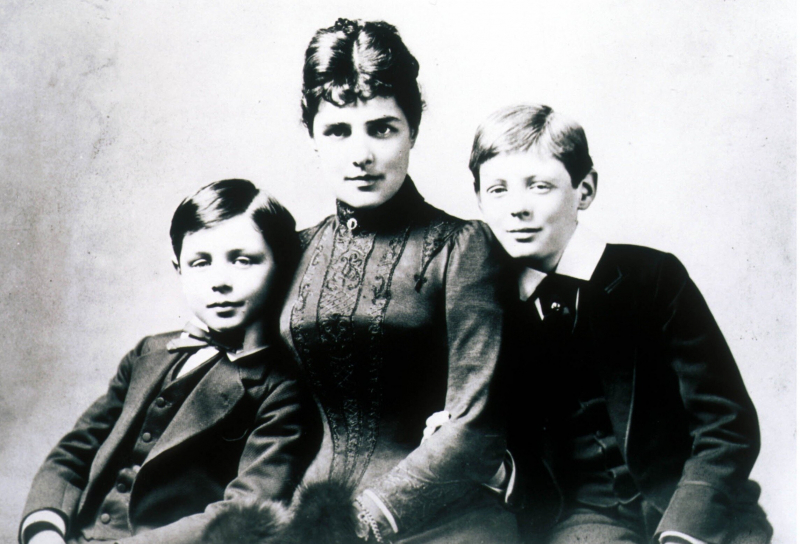
Churchill with his mom and his brother Jack -- www.thesun.co.uk 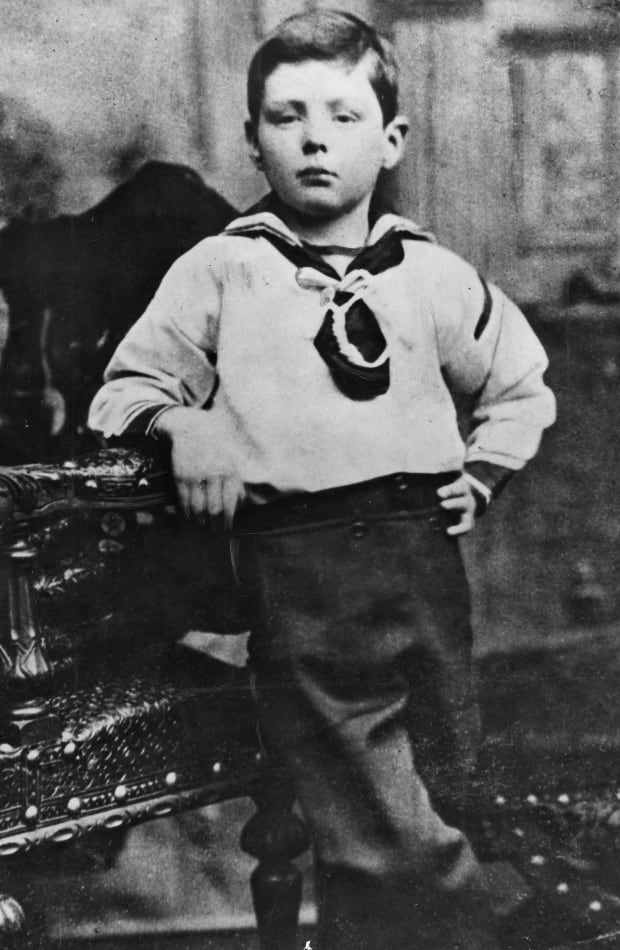
Childhood photo of former British Prime Minister Winston Churchill -- www.chinadaily.com.cn -
One thing that surprises everyone in the interesting facts about Winston Churchill has struggled in school was young. Churchill's early life offered no evidence that he would match the accomplishments of his legendary forebears, such as the Duke of Marlborough. He was sent to a boarding school when he was 7 years old, which he disliked. He entered Harrow in 1888, but because of his poor entrance exam results, he was put at the bottom of the class. Churchill's mother, Lady Randolph, received a letter from the assistant master at Harrow in July 1888 that listed some of his shortcomings, such as forgetfulness, carelessness, and a lack of punctuality. Despite his general academic difficulties, he wasn't seen as being stupid. He fared well in the history and English classes that he liked. Except for history and English writing, Churchill struggled academically. He was especially bad at learning other languages. His name and the first question's number, coupled with "a blot and many smudges," were the only things he wrote on the two-hour Latin test, according to his memoir.
Only a few vocations were seen as appropriate for young guys of Winston's socioeconomic background. Except for the military, the university served as the entrance gate, and due to Winston's subpar academic record, the institution refused to accept him. Winston's disregard for his academics almost caused the premature end of his military career. He failed the admission exams twice. He ultimately passed the third time the Royal Military College Sandhurst admission tests, and he only managed to do so after getting barely enough points to be admitted to the Cavalry rather than the Infantry. Lord Randolph was devastated since he had expected his son to at least pursue a career in the infantry.
Winston started to like and feel anxious about the Cavalry. He developed a liking for riding and excelled at it. Cavalry duty, however, put a strain on his family's finances because the British Officer had to pay for his clothing and horses. However, Winston eventually found his footing at Sandhurst, dedicating himself to the topics that he found interesting and succeeding academically. Winston completed his official schooling at Sandhurst after 18 months of practical training, where he placed 20th out of 130 students.
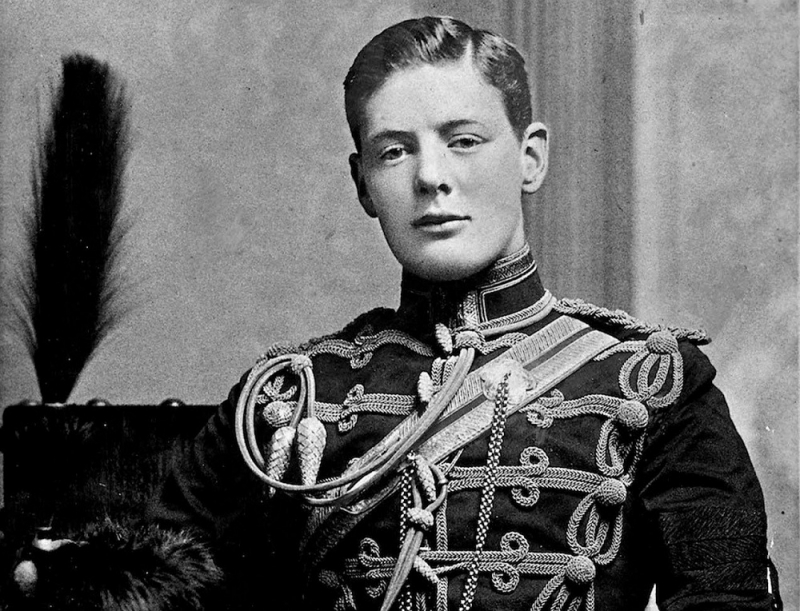
www.theguardian.com 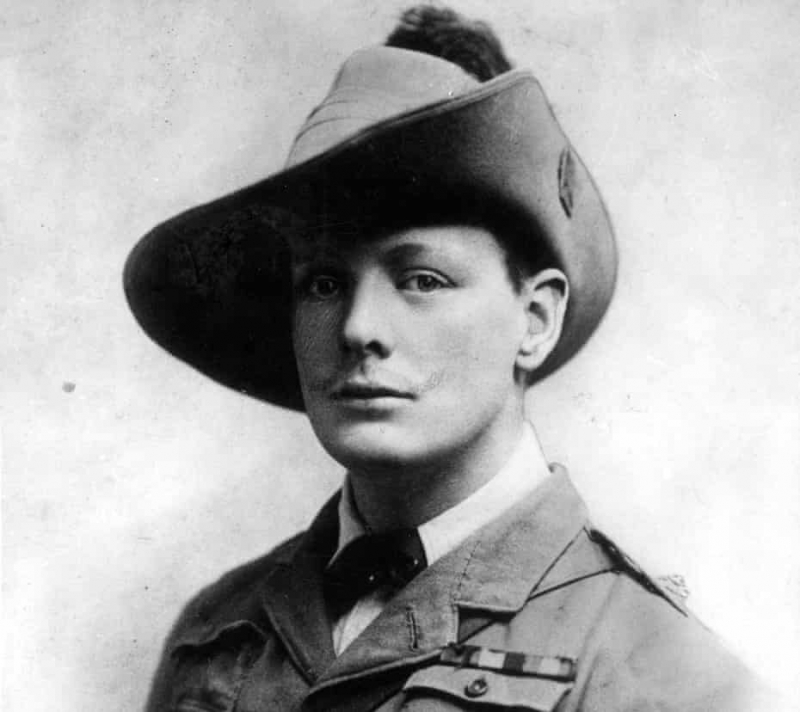
Winston Churchill circa 1899 -- www.theguardian.com -
Churchill's first great love was usually thought to be Pamela Plowden. She rejected his several offers and years of courtship with many letters from him, but she eventually married someone else. Churchill later fell in love with American actress Ethel Barrymore, but she also turned down his marriage proposal. Then Muriel Wilson captured his attention, and despite him taking her on a romantic vacation to Venice, she also declined. Churchill began seeing Clementine Hozier in 1908, and they were married five months later. Churchill proposed to Clementine Hozier in his personal life, they were wed on September 12, 1908, at St. Margaret's, Westminster, and spent their honeymoon in Baveno, Venice, and Vever Castle in Moravia. Despite having five children with Winston, Clementine did not spend much time with them. She put her support behind her spouse instead.
Winston and Clementine, however, were both severely scarred by the terrible death of her daughter Marigold when she was only two years old. A few years later, when Mary, her second daughter, was born, the parents decided to raise her differently. The couple's oldest daughter, Diana, committed suicide in the 1960s by overdosing on drugs. She was the only Churchill child to grow up without having to deal with drinking, divorce, or suicide. Randolph had suicidal thoughts, and Sarah married three times—once secretly and without her parents' consent. Before his passing, Churchill and Clementine were wed for more than 56 years. Due to Winston's busy schedule, the pair spent a lot of time apart even though they kept up frequent contact. Churchill's career depended on the success of his marriage because Clementine's undying love gave him a stable and contented foundation.
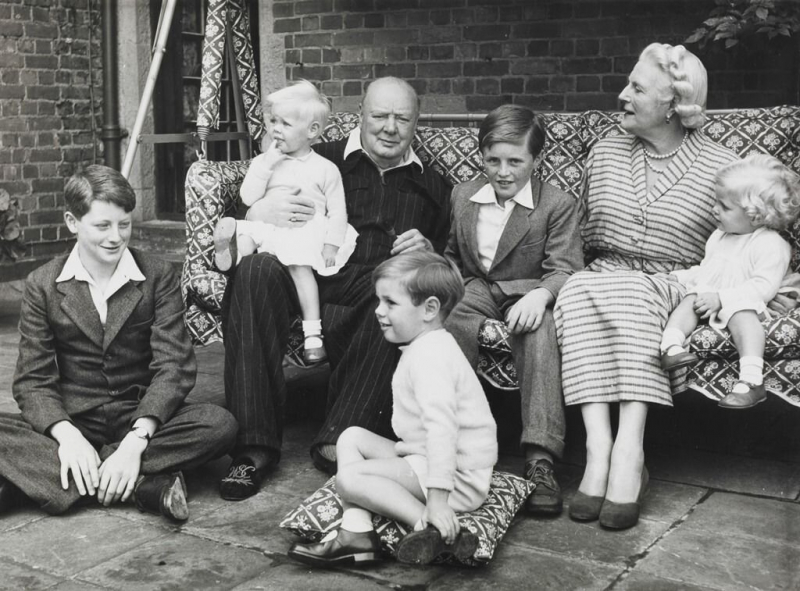
Winston and Clementine Churchill with their grandchildren -- winstonchurchill.org 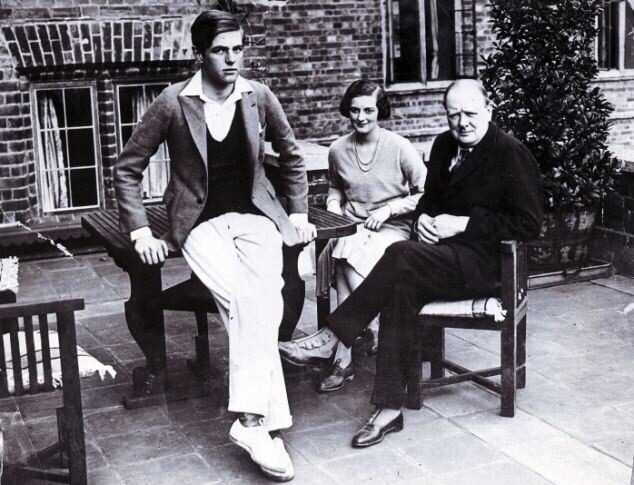
Winston Churchill with children Randolph and Diana -- Wikimedia Commons -
One of the other interesting facts about Winston Churchill is Churchill spent time in a Prisoner of War camp. The story begins when Churchill took a leave of absence from the army following his graduation from Sandhurst to visit Cuba and cover an insurrection there for a London newspaper. Later, he worked in India, Sudan, and South Africa as a war journalist and military officer, roles that were then legal. His armored train was attacked by Boers, the sons of Dutch settlers who were at war with the British at the time when it arrived in South Africa in 1899. Churchill was apprehended and sent to a prison camp, where he quickly escaped by climbing a wall at night as two of his fellow inmates turned around. Churchill scaled the prison wall and fled on the night of December 12, 1899, while the guards weren't looking. With no map, no knowledge of the local language, and only "four slabs of melting chocolate and a crumbling biscuit" in his pocket, the fugitive was still confident that he could make the 300-mile journey through the hostile territory without getting lost. This confidence was on a par with superhuman levels.
Churchill traveled by hiding during the day and drinking from streams when walking at night. When he was on the verge of being hungry, the fugitive took a gamble and knocked on the door of a coal mine boss. Once more, young Churchill's good fortune was on his side since John Howard, an Englishman, answered the door. Before Howard was able to sneak his countryman aboard a freight train that brought him to freedom in Portuguese East Africa, he spent days hiding in the complete darkness of the coal mine with only the patter of the rats darting around his pillow for company.
Churchill chose to continue reporting the war—and participating in it as well—despite having finally found the glory he had long desired. A bullet that struck him at the Battle of Spion Kop cut a feather from his cap. Churchill entered Pretoria on horseback after it was overrun in June 1900 and oversaw the release of the 180 men who were still imprisoned there. That summer, Churchill returned to Britain as the imperial hero he had always envisioned himself to be.
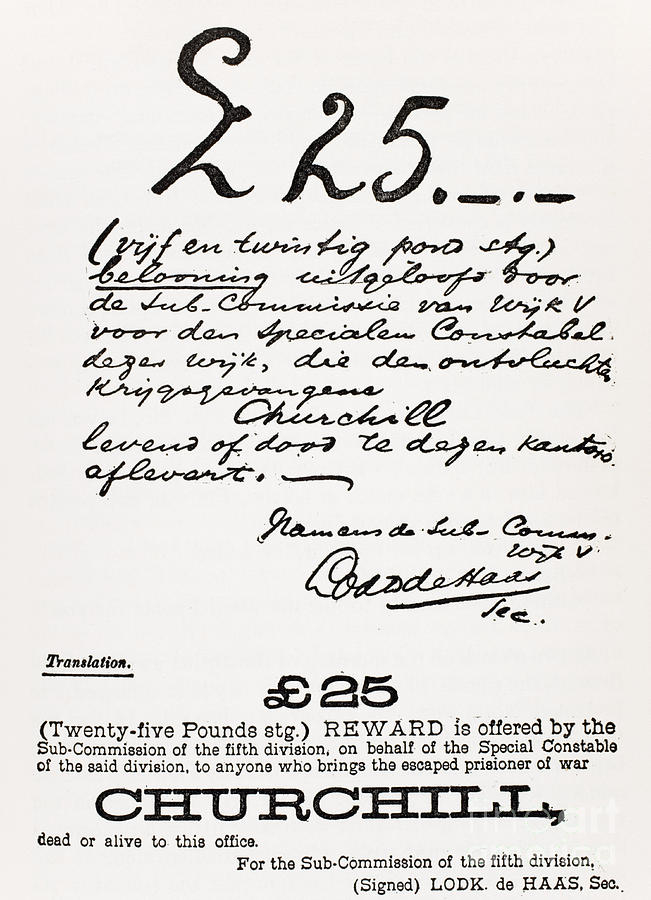
vi.wikipedia.org 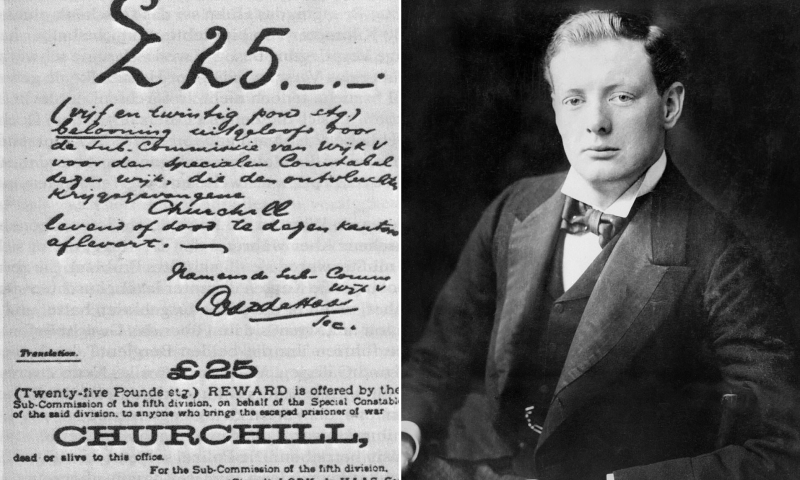
vi.wikipedia.org -
When Churchill was elected to Parliament in 1900, he began his political career. He would maintain that position for more than 60 years. In 1908, he was appointed to his first cabinet position. By 1911, he had ascended to the position of First Lord of the Admiralty (the British equivalent of U.S. Secretary of the Navy). Churchill was the political leader of the Royal Navy, but he also thought of himself as a military planner. In this role, he prepared an amphibious attack on the Ottoman Empire during World War I. Such an effort, according to Churchill, would enable the British to unite with their Russian allies, increase pressure on Germany's eastern front, and maybe even tilt the balance of the war.
However, Ottoman fire caused three of the Allied battleships to sink, seriously damage three more, and send the rest into retreat as they reached the Dardanelles strait, which is close to modern-day Istanbul, in March 1915. During months of warfare on the nearby Gallipoli Peninsula, Allied forces again failed to gain land while losing more than 250,000 losses. After the event, Churchill swiftly announced his resignation. Churchill must have been deeply troubled by this error since during World War II he frequently deferred to military commanders in making strategic and tactical choices. Although his political career and reputation were slightly marred, over time, he was able to repair both.
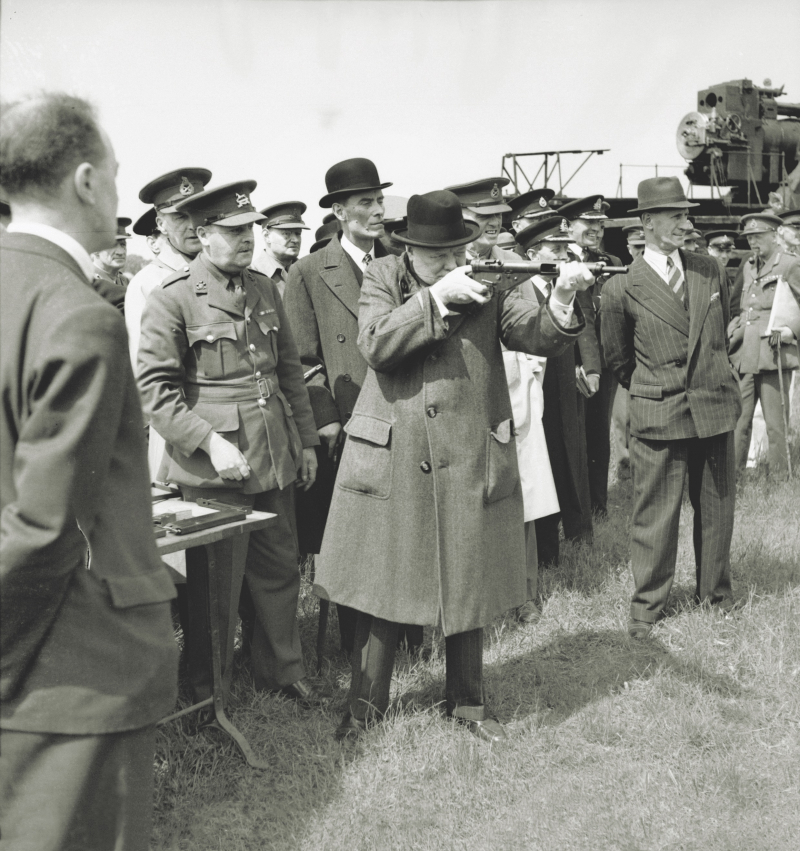
www.history.com 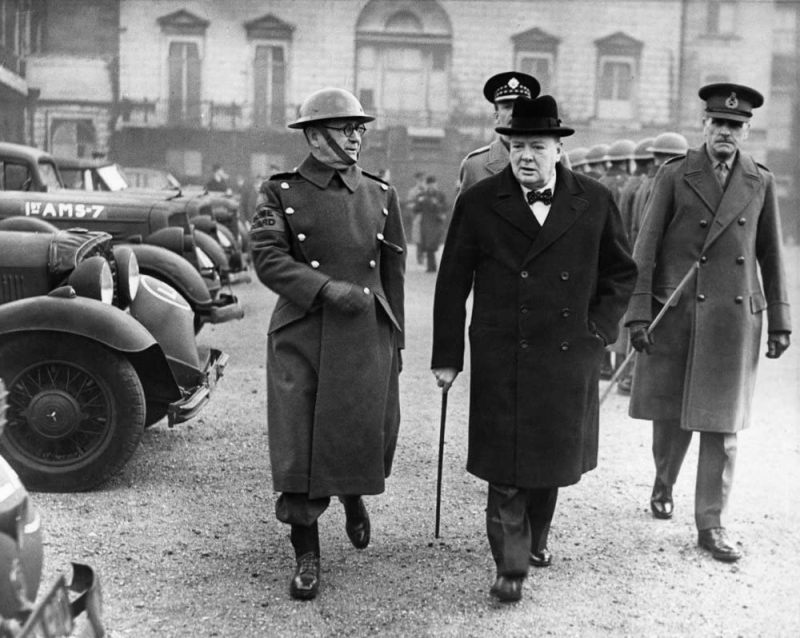
www.history.com -
Given that Churchill is frequently mentioned as one of the "Best Britons" or when people discuss how he was Britain's greatest wartime commander ever. One of the interesting facts about Winston Churchill that could surprise some people is Churchill was voted out of office before World War II’s end. Britain held its first general election in nearly a decade in July 1945, two months after Nazi Germany's unconditional surrender while the Pacific War was still raging. General elections typically take place every four to five years. After Germany had submitted but not Japan, Britain conducted its first general election in ten years in July 1945.
To many people's amazement, Churchill lost to Clement Attlee in a massive surprise landslide because of the opposition Labour Party's efforts to portray Churchill's Conservative Party as anti-worker and anti-welfare. Despite this, he handled everything admirably, declaring: "They have a legitimate right to kick us out, upon learning the news. Democracy is that. That is what our battle has been about." In 1951, he won the position of premier once more, and he held it for three and a half years before being forced to step down due to poor health.
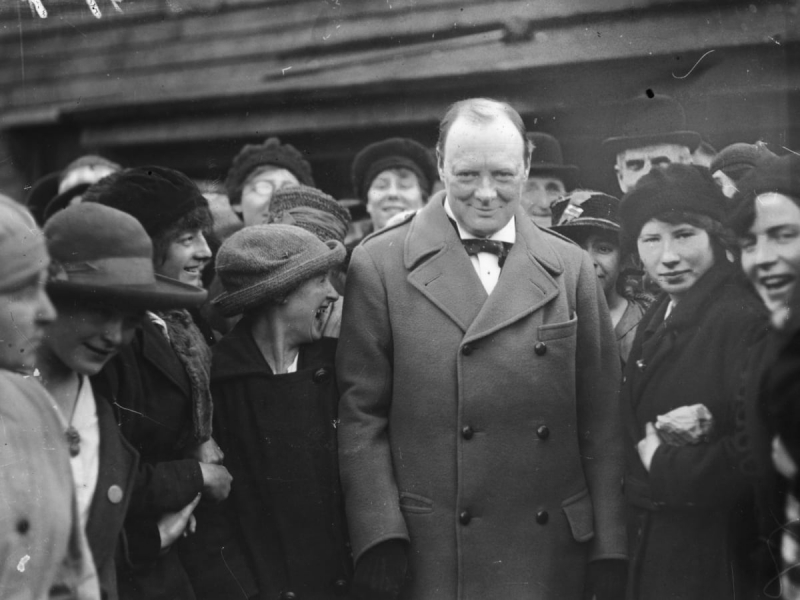
www.history.com 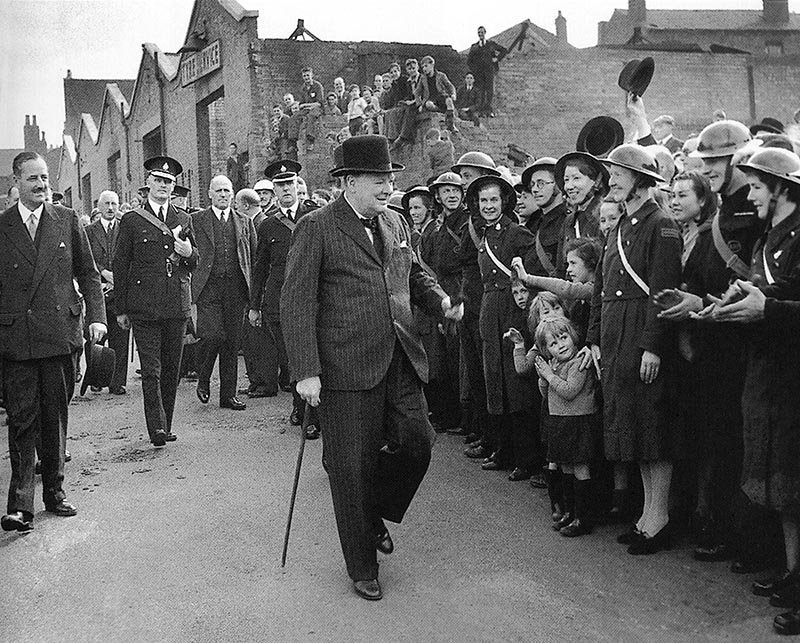
www.history.com -
Churchill lost his seat after the 1929 Tory electoral defeat and was out of government for most of the ensuing 11 years, writing and giving speeches primarily. When the Second World War started in 1939, Neville Chamberlain was forced to resign and Churchill was appointed as the prime minister of a coalition government the war. Churchill was already 65 years old when he became prime minister, yet aging and increasingly unwell but this didn't stop him from being determined. Although he wasn't the preferred candidate inside his party, the public was struck by his will and ambition.
Churchill's speech was his greatest asset in the war against Hitler's Germany. It was critical for maintaining morale, fostering unity, and fostering a strong feeling of leadership. He famously said in his inaugural address as prime minister, "I have nothing to contribute but blood, toil, tears, and sweat," on May 13, 1940, as the Germans launched their onslaught. Members of parliament reacted to this with cheers and applause, demonstrating how energizing and uplifting it was. The national wartime alliance came to an end in the months after the triumph. Churchill would eventually wind up holding the role of Leader of the Opposition in the following years, where he continued to have a significant impact on international events, most notably through the delivery of the infamous "Iron Curtain" speech in 1946.
He was back in office as prime minister by 1951, eager to put Britain's position as a global force first and get involved in the effort to unify Europe. He was obliged to deal with a new dynamic as British colonies farther abroad, including Kenya and the subsequent Mau Mau Rebellion, sought empowerment and self-rule. Churchill was leading at a time when the world was changing all around him, and this was becoming more and more obvious. He encouraged "a meeting at the summit" with the new Russian leaders while upholding peace through strength out of concern over the prospect of nuclear war. Ironically, his resignation as prime minister in April 1955 because of poor health, coincided with the first postwar summit meeting. He would continue serving as a member of parliament for a further nine years.
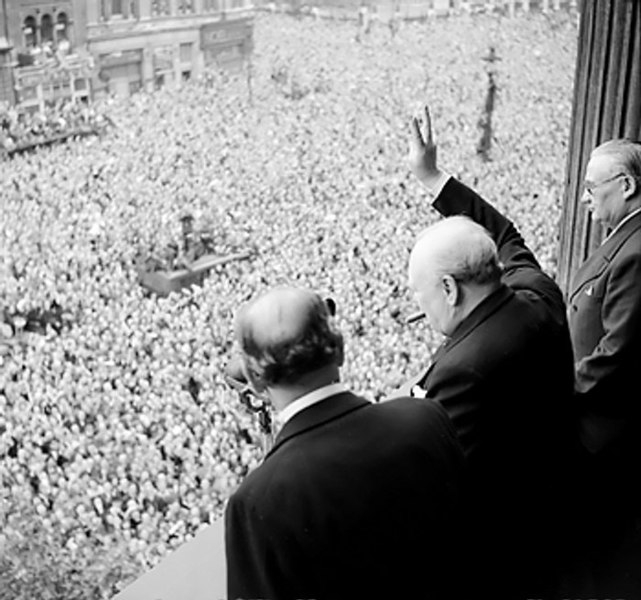
commons.wikimedia.org 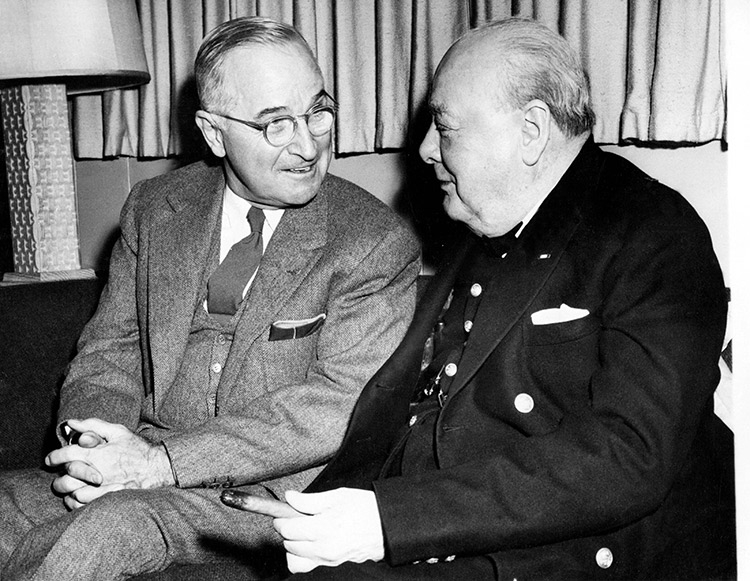
commons.wikimedia.org -
According to all accounts, Churchill had a soft heart and wasn't ashamed to show it, he frequently shed tears in the House of Commons, during speeches, or after being praised. He was also a very talented and imaginative individual; he painted frequently, worked as a journalist in his early years, and wrote books his entire life. One of the amazing interesting facts about Winston Churchill is he was a Nobel Prize winner. The great writer and master of the English language Winston Churchill was. He produced 43 works total, which took up 72 volumes. Winston Churchill relied on his writing to provide for his family and himself throughout his whole life. Many of the forty-three books written by Winston Churchill cover a wide range of important historical topics. Winston Churchill's reissued novels are still available today.
Throughout his life, Churchill published many books. The Story of the Malakand Field Force, Churchill's first book on a revolt in India, was released in 1898. Winston Churchill published a piece about writing "Writing a book was a lot of pleasure. One endured it. It started to accompany me." He then wrote many books about World War I and World War II, a history of English-speaking peoples, a biography of his father, a biography of the first Duke of Marlborough, and one fiction that he begged his friends not to read. The 1953 Nobel Prize for Literature was awarded to Winston Churchill, which was a major honor while still in office as prime minister. The award was given for "his mastery of historical and biographical description as well as for dazzling oratory in upholding elevated human principles."
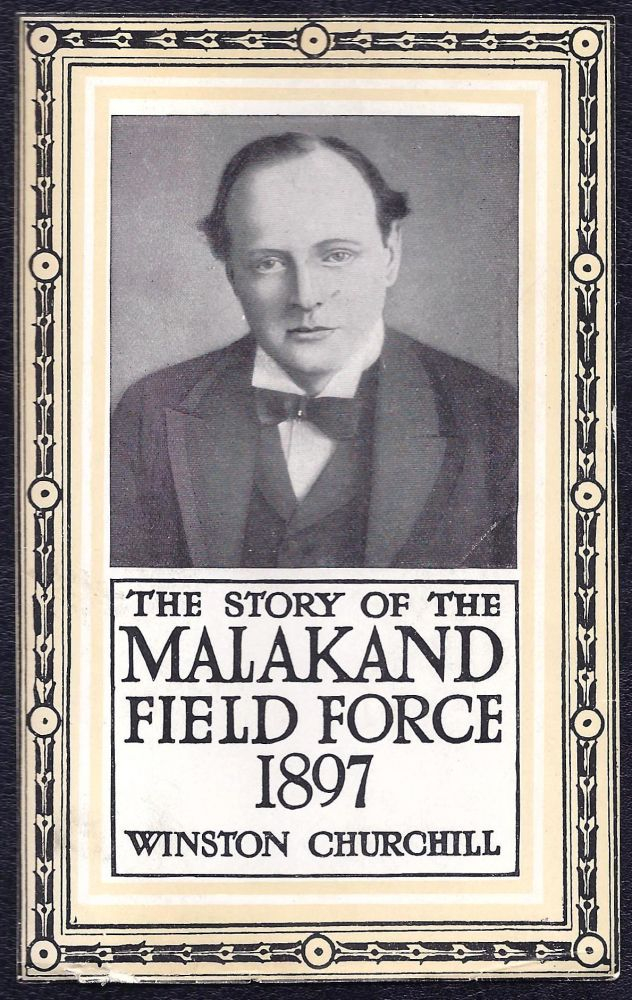
www.churchillbookcollector.com 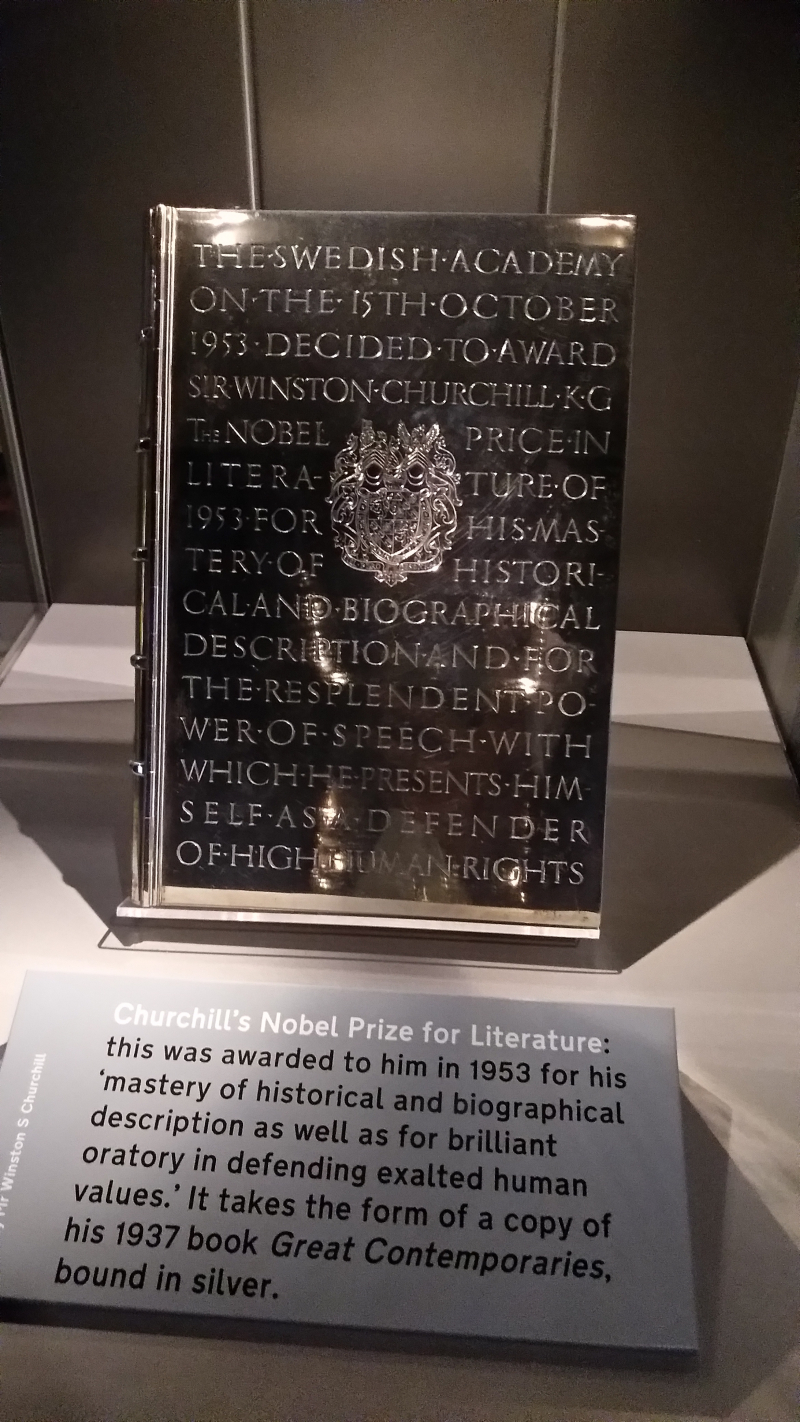
commons.wikimedia.org -
In 1920s articles that would eventually become the tiny book "Painting as a Pastime", Churchill would later write, "Painting came to my rescue in a very difficult time." The renowned British politician turned to his pastime as a source of enjoyment and a break from the pressures of his job. Over 550 paintings would ultimately be produced by him, and he attributed the work to sharpening his visual perception, observational skills, and memory. As he advanced in his career as a renowned author, orator, and political figure, the hobby would blossom and might even help him.
Some have attempted to establish a distinction between Churchill's artistic endeavors and his renowned literary prowess. According to Timothy Riley, director and principal curator of the National Churchill Museum in Missouri, "How he picked up a paintbrush is akin to how he picked up a pen to write a speech. His artwork originates from the same location. He was inspired as a politician, writer, reader, and painter by his great mind, vision, and ability of observation." And Sandys also thinks that Churchill was a better leader as a result of his hobby of painting, particularly since it helped him become a better observer and remember. He cited the Battle of Britain in 1940, which occurred soon after Churchill was appointed prime minister and during which he visited the front lines to see firsthand how the British defended itself. Sandys said, observing that it may have enabled him to assess the whole image of the battlefield and recognize the areas for improvement, "Perhaps he felt that by going down there and looking at these things firsthand, he would see more and recall it more precisely." The painting was a contributing element to some of the choices he made at that crucial time.
However, his method of painting was very different from his method of writing. While he struggled with painting, he was naturally gifted at writing, which he relied on for his livelihood for most of his life. "With painting, Churchill was forever the keen student, whereas, with words, he was always the master," according to Carter. Churchill believed that formal art instruction was a young person's game and was mostly self-taught. He thought that a certain type of enthusiasm was what he and his like-minded amateur colleagues most required. Nevertheless, he was eager to hone his skills and did so by picking up tips from notable performers, he befriended painter Paul Maze. For the remainder of their lives, the two remained close friends and painting partners. Most of Churchill's surviving paintings may be seen at Chartwell House in London, where he worked under the alias "Charles Morin."
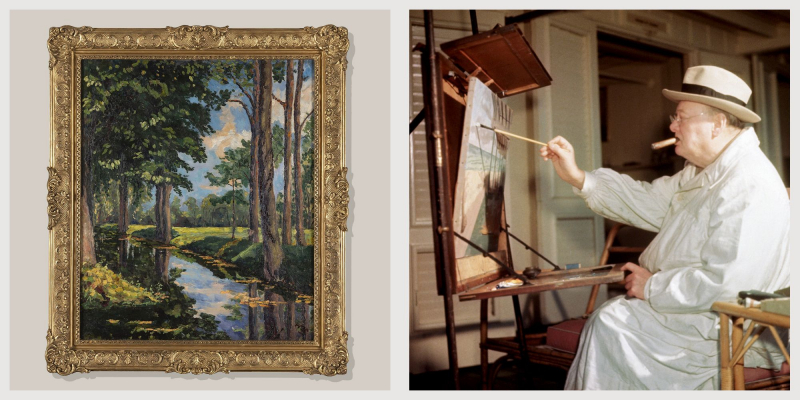
www.wikiart.org 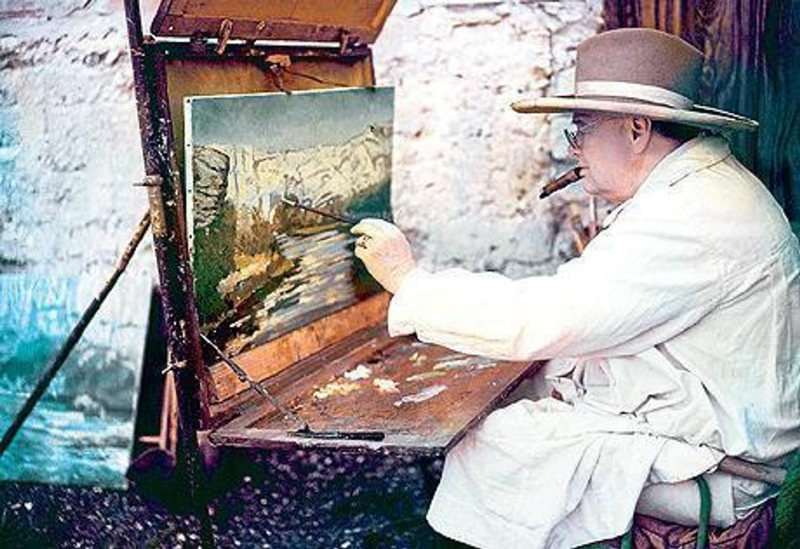
www.wikiart.org -
Amazingly, one of the interesting facts about Winston Churchill, is that a man who frequently appeared in public and gave speeches that made him famous was a lisped. Churchill struggled to pronounce the letter "s" throughout his entire life due to a speech impediment similar to his father's. Churchill later learned that his tongue was "restrained by a ligament which none else had" from an American masseuse. He considered that to be "the real explanation" for his nasal speech. Earlier, the Boers had stated in their announcement for his capture after he had escaped from jail that "during extended chats, he periodically produces a rattling noise in his neck." This description was similar to that. Churchill informed his mother that he was still "tied" when he met Dr. Semon about removing the ligament, but he declined to do so.
He even sought assistance from a speech therapist in 1897, according to the International Churchill Society, who suggested practice and perseverance develop proper word pronunciation. Churchill persisted and practiced lines like "The Spanish ships I cannot see for they are not in sight" to improve his pronunciation. This type of "exercise" was designed to help him overcome his difficulty pronouncing the sibilant "s." Churchill kept on practicing as a result. After a particularly well-received political address, he subsequently claimed that he would become a brilliant public speaker, stating, "My disability is no problem."
A wonderful example of overcoming challenges to reach greatness is Winston Churchill. One of Churchill's quotations that have made a positive impact on each of us is "An optimist sees the potential in every struggle; a pessimist sees the difficulty in every opportunity."
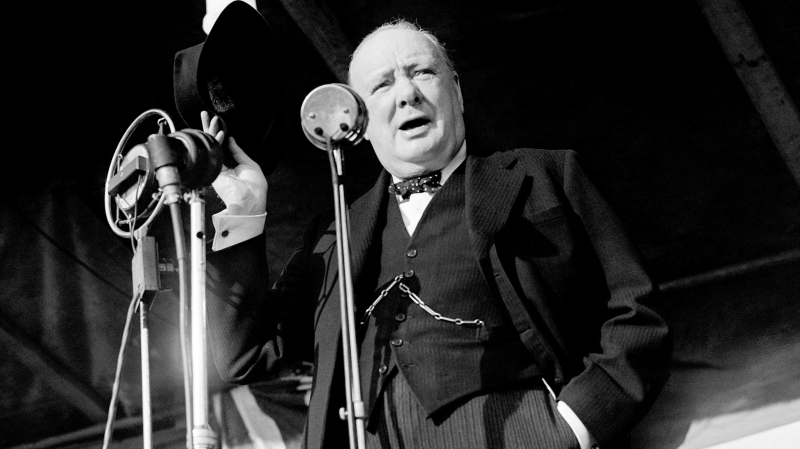
www.historyextra.com 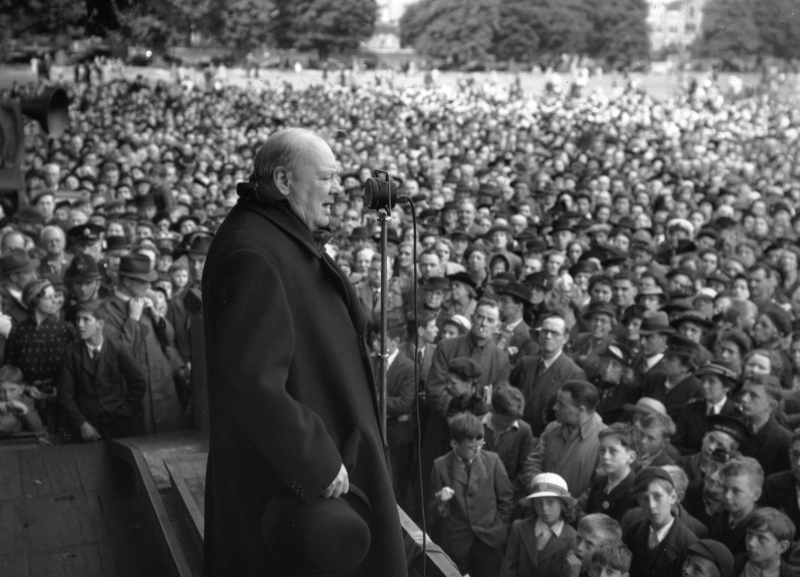
www.historyextra.com -
The British Bulldog is frequently seen in famous photos holding a large cigar in his palm or smiling, but smoking wasn't his only vice. The trendy brandy and soda was Lord Churchill's preferred beverage. The guy himself famously proclaimed that the four necessities of existence are "hot baths, cold champagne, fresh peas, and old brandy."
When Churchill was a young soldier, he headed out to South Africa for the Second Boer War with 60 bottles of different alcoholic beverages, largely made up of his preferred whiskey and brandy. Even better, he was able to secure a doctor's certificate in 1932 that allowed him to consume alcohol indefinitely while in the United States. The great man loved to eat breakfast by himself in his bedroom and spend most of the morning working in bed or his study with a whiskey nearby. These morning drams only had a tiny bit of liquor in a huge glass that was filled with water, which seems like a prescription for inebriated catastrophe. Up until noon, he drank on whiskies judiciously before savoring a pint bottle of Champagne (often presented in a silver tankard) with his meal. After dinner, he may sip vintage wine, and then have Port and brandy with his cigar. He occasionally drank a hard Scotch and soda, especially under pressure.
Churchill was informed he couldn't drink in front of Saudi King Abdulaziz because of the King's religious convictions when they were scheduled to meet in 1945. Churchill said, "My religion mandated an absolute holy ceremony, smoking cigars and drinking alcohol before, during, and if necessary during all meals and the intervals between them," in his trademark dry non-funny manner. It was one of the interesting facts about Winston Churchill is he consumed a lot of alcohol, although he seldom ever seemed drunk. He stated, "I had been raised and educated to feel the deepest scorn for anybody who got drunk," with the same qualification, "Except on really extraordinary events like anniversaries."
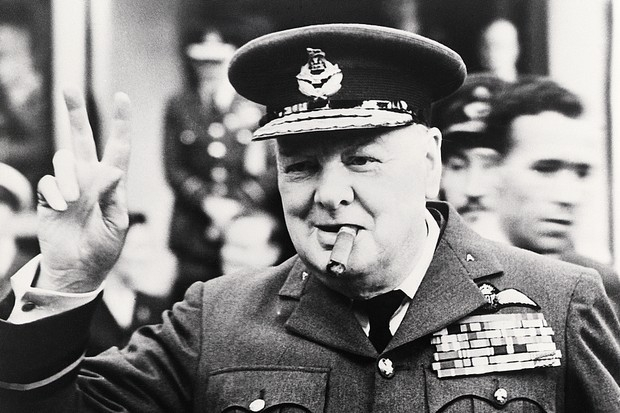
www.npr.org 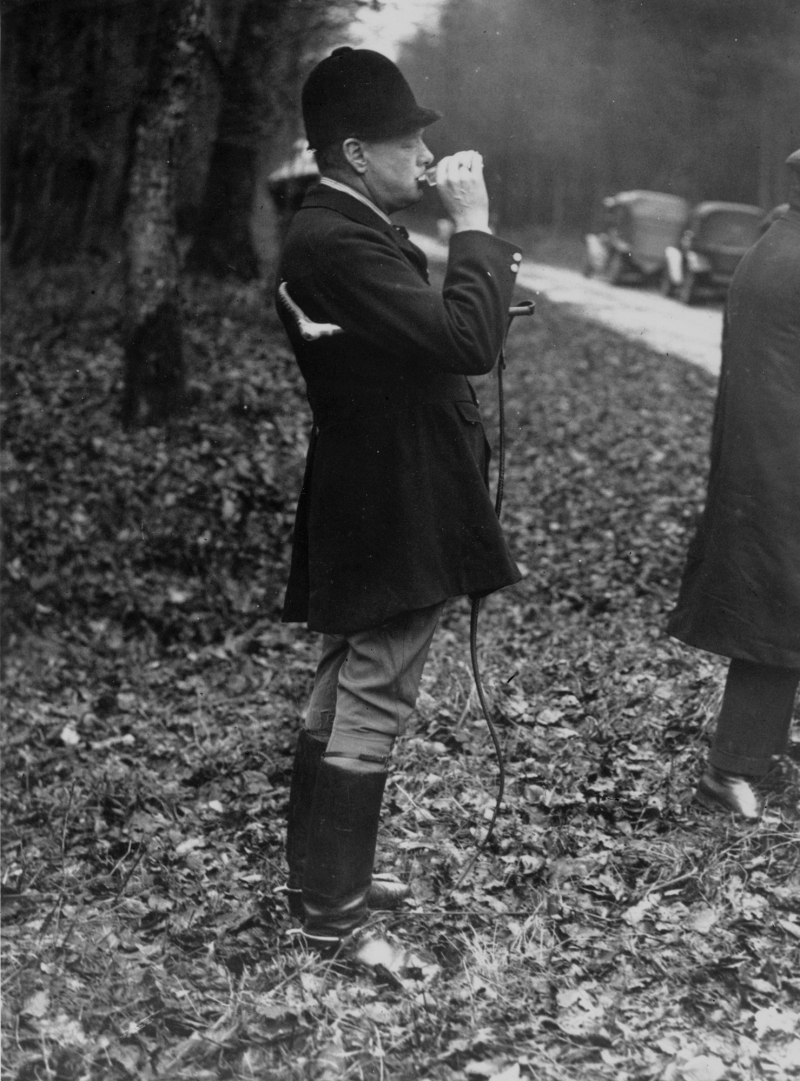
www.npr.org -
Winston Churchill passed away at the age of 90 on January 24, 1965, nine days after suffering a severe stroke. With officials from 112 countries in attendance and 350 million Europeans, including 25 million Britons, watching live on television, he was accorded the greatest state burial in British history. Dock workers along the River Thames simultaneously dropped their cranes in a stunning unplanned homage as Churchill's casket went by. The RAF conducted a fly-by with 16 English Electric Lightning fighter planes as the Royal Artillery saluted with a 19-gun salute. Churchill requested to be interred at his family grave, which is close to his Oxfordshire birthplace of Blenheim Palace.
Few people can lay claim to the honor of being remembered on a coin. The commemorative subject must be given substantial weight to be taken into consideration when choosing the themes and designs for coins. When Winston Churchill passed away in 1965, it was fitting that he was given the honor of being remembered on a coin, which is uncommon for a leader. Winston Churchill made such an impact and left such a lasting legacy that, 50 years later, his memory will once again be honored on UK coins, making him the first politician to be thus honored twice.
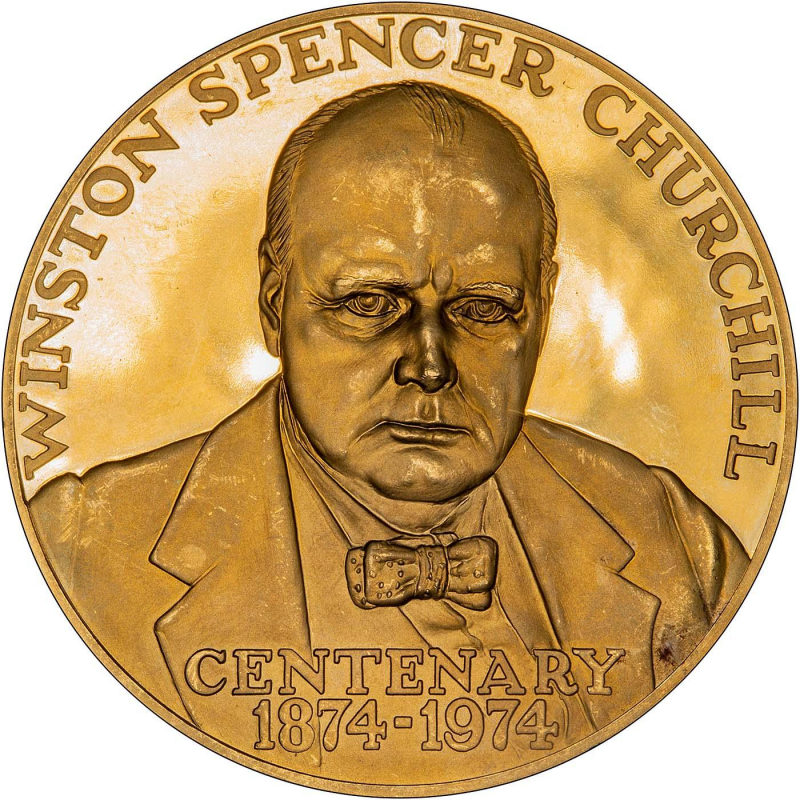
www.numismaticnews.net 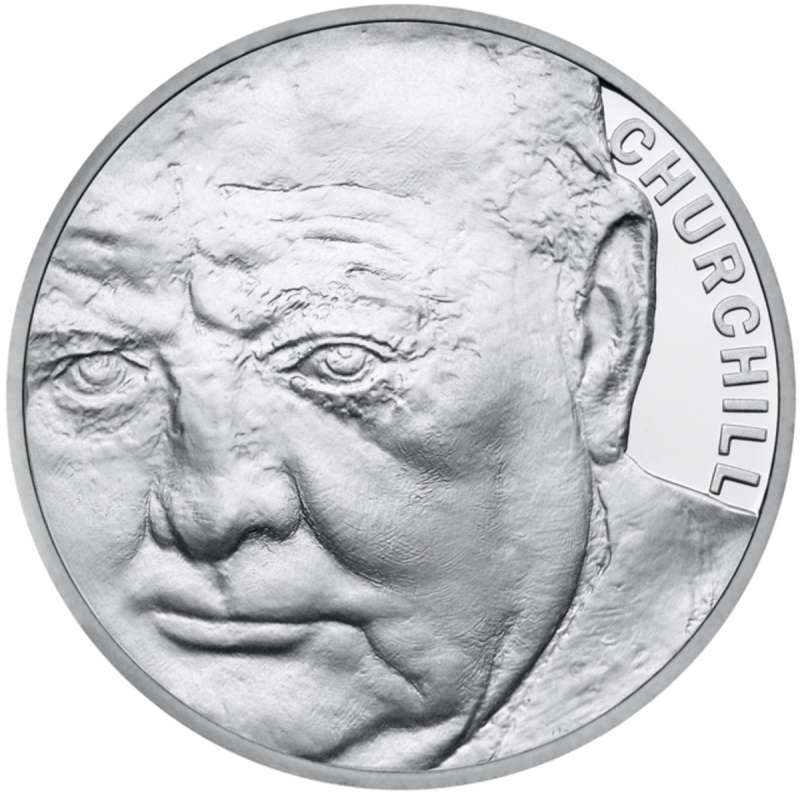
www.numismaticnews.net






























